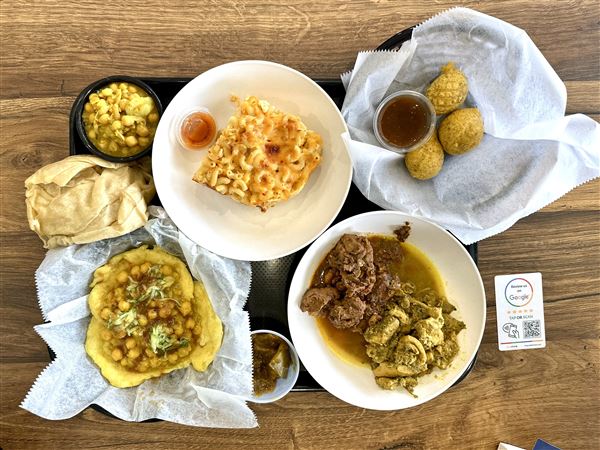First there was fishing, dropping a hook in the water in hopes of catching dinner. Then came "phishing," where online hackers steal a victim's account numbers, passwords, etc. to loot their checking accounts and run up credit card bills.
Now there's "catfishing," where some miscreant pursues deceptive online romances using fictitious identities.
Catfishing is not about pedophiles trolling for child sexual victims, which is against the law. It's about people taking a sick pleasure in manipulating vulnerable targets, playing on their emotions and setting them up for heartbreak.
That, unfortunately, is not yet considered criminal, although maybe the laws will change as the phenomenon spreads. And it is spreading, thanks to the ease of creating a false persona via social media.
You may have heard catfish stories from the MTV show of the same name, or the latest one involving Notre Dame linebacker Manti Te'O, who apparently was taken in by a teen-age boy pretending to be a dying girl in love with him.
Another such story, closer to home, is exponentially weirder. This one involves the family of Roz and Sandy Neiman of Shadyside. Roz and I are members of the same extended family so I've known her most of my life. At a recent family gathering she told a story that left the room speechless -- no easy feat in this group. It also gave me a splitting headache.
It seems a woman in south Florida had expropriated Facebook images of the couple's sons -- Noah, a buff physical fitness trainer in New York City, and Parker, now a junior at Boston University. She renamed them Kevin and Lucas San Roman and used their alter egos to romance dozens of teenage girls who thought they were having online love affairs. She also gave "Kevin" a fatal case of leukemia, the better to play on the girls' emotions. Eventually she killed him off, after which at least one girl reportedly had some kind of breakdown.
The elaborate hoax went on for more than three YEARS, complete with a Facebook page and blog detailing Kevin's brave struggle and the family's devotion to cancer causes. Finally the mother of one girl called police.
The Miami Herald did a story unraveling the convoluted scheme and printed the photo of "Kevin" and "Lucas," saying that their identities were unknown. A friend of Parker's saw it and contacted him. Only then did the Neimans find out how they were being used.
It turned out that the perpetrator was 28-year-old Cindy Choi, a Chinese restaurant owner who lives in a gated community in Doral.
"It's the most bizarre thing I've ever heard of," said Roz, a real estate agent who has heard plenty of bizarre stories. Sandy, an attorney, has talked with Florida police about the scam, but since the hoaxer didn't physically hurt anyone or take their money, no charges have been filed.
Civil actions by the girls' families, however, may be forthcoming.
"This woman was incredibly manipulative," Roz said. "She'd tell the girls things like 'I was at your house [meaning "Kevin" or "Lucas" was] but I was afraid to see you so I left a McDonald's cup.' The girls would look outside and the cup would be there. It was like she stalked them."
Why would anyone do such a thing? According to the Miami Herald story by reporter David Ovalle, it could be a case of "Munchausen by Internet," a cyberworld variation of Munchausen disorder, in which people create illnesses to garner attention. The ease and anonymity of the digital age has made it a growing trend, according to Marc Feldman, a University of Alabama psychiatrist who coined the phrase.
Ms. Choi's case, he told the Herald, is unusual because the deception lasted so long and escalated into targeting young girls.
"The real motive is attention and sympathy and the power over others," Dr. Feldman said. "It does sound sadistic and predatory."
Of course you have to wonder about adults who are fooled into online romances and how they could suspend disbelief in an age of rampant online fakery. They'd have to be pretty lonely or naive to buy into a "relationship" without ever meeting the object of their affection. Apparently, though, there is no shortage of people who can be hoodwinked in this way.
But these particular victims were high school girls. Their youth, combined with a generational acceptance of social media as gospel truth and the ease of hiding their online lives from their parents, made them even more vulnerable targets.
"It's not an unbelievable story anymore," said Parker Neiman on a phone call in between classes at B.U. "It's happening more and more often, and it's awful.
"I have no idea what was going on in this woman's head," he continued. "Noah and I knew nothing about it, but we feel so bad for the people who got involved. I just hope there aren't any lingering effects."
The girls weren't the only victims, though.
"It felt like my family had been invaded," Roz said. "It was all over the paper that my children were breaking people's hearts, and they didn't even know it was going on."
Many of us know people who met online and moved into flesh-and-blood relationships. We also know people may misrepresent themselves as tall when they're short, young when they're middle-aged or thin when they're paunchy. I still can't get over the guy who uses his real name and photo on dating sites, telling women he's divorced when half the city knows he's married.
But catfishing is an especially noxious use of social media, and something to keep in mind the next time you post family information on Facebook.
First Published: January 27, 2013, 5:00 a.m.
















